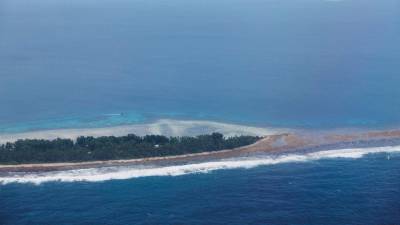NEW YORK: Leaders of developing countries threatened by climate change told rich nations at the United Nations General Assembly that they are falling far short of promises to fund measures to combat rising sea levels, droughts and deforestation.
Marshall Islands President Hilda Heine told the assembly that it is past time for the rich world to meet its obligations and get money to where it is needed most.
She stated that promises do not reclaim land in atoll nations like hers.
Wealthy countries have struggled to meet climate finance commitments, reaching the $100 billion per year amount agreed upon in 2009 two years late in 2022.
At a United Nations climate summit last year, leaders agreed to provide developing countries $300 billion annually by 2035.
Many developing countries blasted that sum as far too small to meet the need.
Experts have estimated that developing countries need at least $1 trillion annually by the end of the decade.
Leaders of developing countries say rich nations must provide resources to cope with a climate crisis they created.
Since the Industrial Revolution, the United States has been the largest cumulative emitter of greenhouse gases according to an analysis by Our World in Data.
Fiji Prime Minister Sitiveni Rabuka said those who shoulder the blame must foot the bill.
Ghana President John Mahama pushed back against growing anti-immigration policies in the global north, attributing much migration to climate change.
He told the General Assembly that many migrants are climate refugees forced to flee when their villages become unlivable.
Somali President Hassan Sheikh Mohamud said climate change is forcing governments in developing countries to make impossible financial trade-offs.
He explained that droughts, floods and rising seas erode livelihoods and displace families, with around 10% of developing nations’ budgets spent on responding to climate change.
Germany said it provided a record 11.8 billion euros for international climate financing in 2024 and met its global commitment.
Leaders of island nations including Tuvalu, Comoros, Madagascar and St. Lucia called for funding to flow to countries that need it most with fewer obstacles.
Comoros President Azali Assoumani called for equitable and simplified access to climate financing.
China said it would cut its emissions by 7% to 10% from their peak by 2035, a pledge that drew criticism from the European Union’s climate chief.
Palau President Surangel Whipps Jr urged the world to visit the Pacific region to see climate impacts firsthand and be moved to act. – Reuters
